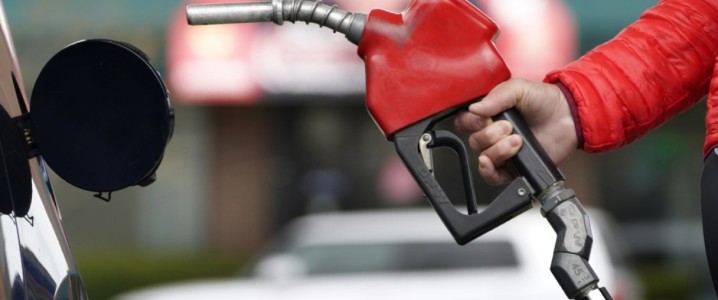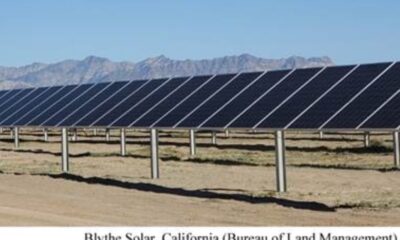Business
U.S. Gas Prices Set to Drop Below $3 per Gallon This Summer

U.S. motorists are on track to experience a significant decrease in gasoline prices this summer, with projections indicating a potential drop below $3 per gallon. This would mark the first time in over four years that prices have fallen to such levels. Factors contributing to this anticipated decline include increased imports replenishing inventories and a decrease in fuel demand due to adverse weather conditions.
As of now, the national average price for gasoline stands at approximately $3.15 per gallon, the lowest recorded during the summer months in the past four years. Prices last dipped below the $3 mark in May 2021. Currently, many drivers are benefiting from prices under $3, with reports from GasBuddy showing that the majority pay around $2.99, while some are even finding prices as low as $2.79. The median price for gasoline across the country is $2.97 per gallon.
Despite the overall trend, certain regions continue to face higher prices. Motorists in California, for instance, are paying an average of $4.49 per gallon, while Hawaii and Washington follow closely with prices of $4.47 and $4.41, respectively. Additionally, the top 10% of gas stations are charging around $4.34 per gallon, nearly $2 more than the bottom 10%, which has prices as low as $2.54.
Fuel demand is currently lagging, with a reported 2.5% decrease year-on-year as of the week ending July 4, 2024. This decline is concerning given that summer typically represents peak driving season in the U.S. The U.S. Energy Information Administration (EIA) recorded an average supply of 9.2 million barrels per day over the past four weeks, marking a 1% year-on-year decline.
Weather Patterns and Changing Habits Impact Demand
Extreme heat this season is linked to reduced driving, as high temperatures discourage many from traveling. Compounding this issue, shifts in driving patterns post-pandemic—particularly the rise of remote working—have contributed to a sustained decrease in gasoline consumption. The current consumption levels have not yet reached the 9.3 million barrels per day record set in 2018.
Patrick De Haan, head of petroleum analysis at GasBuddy, noted the changing landscape of consumer behavior and its impact on fuel demand. He emphasized that the increasing efficiency of vehicles and the growing popularity of electric vehicles (EVs) are reshaping the market significantly.
Electric Vehicles and Future Projections
Electric vehicles are making a notable impact, displacing approximately 3.5 million barrels of oil per day worldwide, with a substantial portion of this displacement occurring in the U.S. The International Energy Agency (IEA) predicts that the global EV fleet will displace more than 5 million barrels per day of crude oil by 2030, driven by rising adoption rates in the U.S., Europe, and China.
The surge in EV adoption is particularly pronounced in China, where about one in ten cars is electric. In Europe, Norway leads the way with 88% of new cars sold in 2024 being fully electric. This rapid transition has resulted in a 12% reduction in oil demand in Norway from 2021 to 2024, a significant change for a country that is a major supplier of natural gas to the European Union.
As the market adapts to these evolving dynamics, consumers can expect a summer of lower prices at the pump, even as the landscape of fuel consumption continues to transform. The coming months will be critical in determining how these factors will shape the future of gasoline demand in the United States.
-

 Entertainment3 months ago
Entertainment3 months agoAnn Ming Reflects on ITV’s ‘I Fought the Law’ Drama
-

 Entertainment4 months ago
Entertainment4 months agoKate Garraway Sells £2 Million Home Amid Financial Struggles
-

 Health3 months ago
Health3 months agoKatie Price Faces New Health Concerns After Cancer Symptoms Resurface
-

 Entertainment3 months ago
Entertainment3 months agoCoronation Street’s Carl Webster Faces Trouble with New Affairs
-

 Entertainment3 months ago
Entertainment3 months agoWhere is Tinder Swindler Simon Leviev? Latest Updates Revealed
-

 World2 weeks ago
World2 weeks agoBailey Announces Heartbreaking Split from Rebecca After Reunion
-

 Entertainment2 weeks ago
Entertainment2 weeks agoCoronation Street Fans React as Todd Faces Heartbreaking Choice
-

 Entertainment4 months ago
Entertainment4 months agoMarkiplier Addresses AI Controversy During Livestream Response
-

 Science1 month ago
Science1 month agoBrian Cox Addresses Claims of Alien Probe in 3I/ATLAS Discovery
-

 Health5 months ago
Health5 months agoCarol Vorderman Reflects on Health Scare and Family Support
-

 Entertainment4 months ago
Entertainment4 months agoKim Cattrall Posts Cryptic Message After HBO’s Sequel Cancellation
-

 Entertainment3 months ago
Entertainment3 months agoOlivia Attwood Opens Up About Fallout with Former Best Friend




















